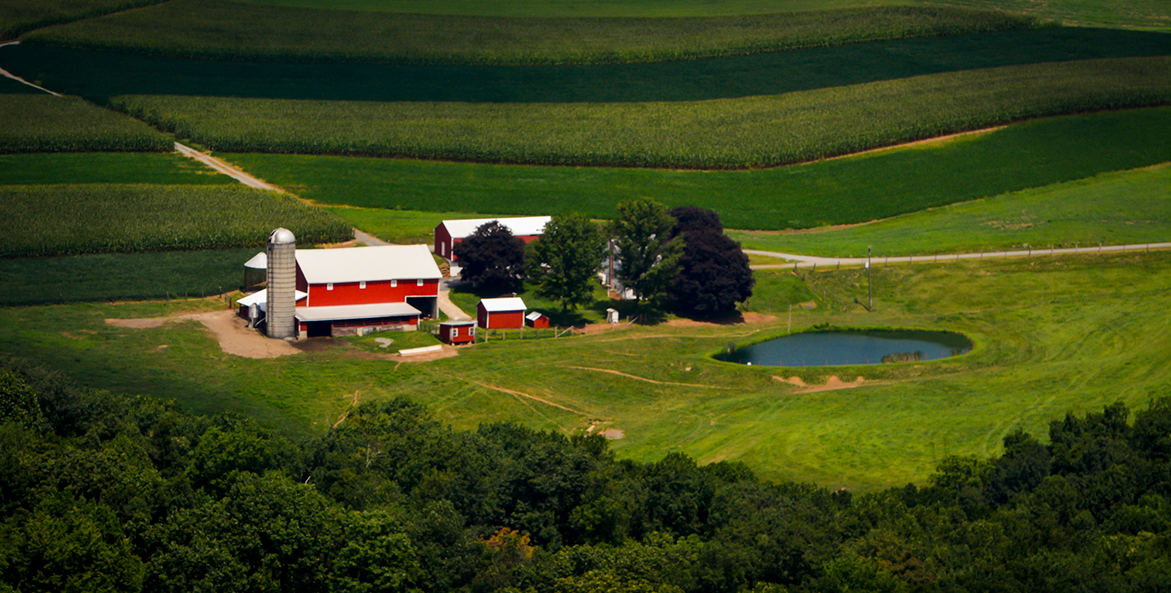This op-ed originally ran in the Bay Journal.
Pennsylvania’s final watershed implementation plan to clean up the state’s portion of the Chesapeake Bay watershed and meet its commitments under the Chesapeake Clean Water Blueprint by 2025 is under review by the U.S. Environmental Protection Agency. Let’s be clear: The plan is inadequate in many ways. It doesn’t cut nitrogen pollution nearly enough, and there is a significant funding gap that legislators have not identified ways to fill.
But for those who rightly worry about the state’s ability to meet its pollution reduction goals, I have some good news. Many Pennsylvania farmers get it.
I manage the agriculture program for the Chesapeake Bay Foundation’s Pennsylvania office. I go to a lot of farming events and trade shows, and I stand shoulder to shoulder with a lot of farmers.
By and large, most of the conversations I have with farmers are very positive. Farmers recognize that they have an impact on water quality in their communities and are interested in improving it.
Many farmers are ahead of the game and are really proud of the progress they’ve made implementing conservation practices. They’re excited to stop by and talk about the cover crops they planted and the organic matter they’ve added to their soil through soil health management.
When we have heavy rains that bring 2 or 3 inches of water down in a couple hours, farmers are proud to see the runoff is basically clear; it’s not carrying away their soil.
I can also say there is real commitment from our county conservation districts, the folks who work out of the U.S. Department of Agriculture offices, and our local nonprofits to help farmers implement conservation measures. They are working diligently, at capacity, and really want to make a difference.
This is the culture and climate in Pennsylvania farm country right now that makes me optimistic we can meet our Blueprint goals.
But, there’s another side of the coin. The fact remains that we lack the necessary commitment and resources from state legislators to finish the job.
Pennsylvania farmers want to help clean up their waterways. They’re willing to invest their time, land and effort. We need legislators to provide the funding and technical assistance that allow them to do so.
Farmers are a lot of things—they practice animal husbandry, they’re plant pathologists, they’re accountants, and they’re often conservationists. But they can do none of these things if they can’t turn a profit. Bottom line, they are a business.
Just like any other business, their decisions need to make financial sense.
Without the help of public dollars, conservation practices that can take five, 10, or even 20 years to provide a return on investment to the farmer are a tough sell. Especially now. Low commodity prices and turmoil in international markets are hitting farmers hard. As the Bay Journal reported, many are struggling just to make ends meet.
The Pennsylvania Farm Bill signed into law this year provided roughly $6 million for programs to help farmers implement conservation measures. It’s a positive improvement we can build on, but legislators still have a long way to go to close the funding gap. In comparison, Virginia is investing $73 million in a cost-share program to help its farmers clean up waterways.
State legislators and the EPA, as the lead federal partner in the Bay cleanup effort, should also work with the USDA to identify ways to direct more federal Farm Bill dollars to Pennsylvania.
Again, there have been positive steps in this direction. Sen. Bob Casey (D-PA) helped to secure new measures in the 2018 Farm Bill that make it easier for farmers to install forested buffers along streams. It is important for programs like these to target key areas in Pennsylvania to reduce agricultural pollution, especially counties—like Adams, Franklin, Lancaster, and York—identified as priorities in the state’s watershed implementation plan.
In addition, the Keystone 10 Million Trees Partnership, spearheaded by the Chesapeake Bay Foundation, has an important and ambitious goal of planting 10 million new trees before the end of 2025.
But it’s not just about the money. We also need to invest in technical staff and resources. We need people working in outreach and education; and we need people with the expertise to help farmers design and build effective conservation practices. Pennsylvania’s final watershed implementation plan estimates more than 70 additional agricultural staff and technical assistance specialists are necessary to meet the plan’s goals.
Everyone wants Pennsylvania’s farmers to succeed. Agriculture is one of Pennsylvania’s most important industries, and many people move to Pennsylvania because they enjoy the rural charm of farm country. The boots on the ground—the farmers and the conservation community—are leading the way. It’s time state legislators invest in them.
Bill Chain, CBF's PA Assistant Director & Sr. Ag. Program Manager
Issues in this Post
Agriculture Agriculture Chesapeake Clean Water Blueprint Keystone Ten Million Trees Partnership Land Use Runoff Pollution The Susquehanna River Water Quality CBF in Pennsylvania



